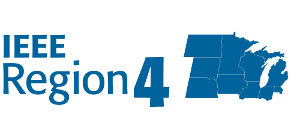IEEE Solid–State Circuits Society Central Illinois Section Distinguished Lecture Abstract: Power-Efficient Short-Reach Electrical Links for the AI Era Data center, compute, and AI applications continue to demand higher bandwidth from electrical interconnects. The volume of short-reach links (less than a few cm) has exploded to facilitate high-bandwidth data movement between compute engines and memory in the AI era. This massive growth will continue as the industry moves towards highly-parallelized die-to-die interfaces to support chiplet-based architectures. However, power efficiency in these links is of paramount importance to maintain reasonable power levels within a compute drawer. This talk will focus on trends and advancements in power-efficient short reach links that aim to maximize the shoreline bandwidth density. Multi-disciplinary approaches involving circuit innovations, architectural advancements, data signaling techniques, and packaging technologies are required to deliver linear bandwidth densities above 1 Tbps/mm at power efficiencies below 500 fJ/bit. Speaker: Dr. Timothy (Tod) Dickson Principal Research Scientist @ IBM T.J. Watson Research Center This event is being hosted by the IEEE Solid State Circuits Society and IEEE Central Illinois Section. PLEASE REGISTER IF ATTENDING: This event is open to all IEEE Members, IEEE Students, IEEE Graduate Students, and UIUC students. The event is free to attend. You are invited to register and attend the technical presentation. Join us for the event, a light lunch (pizza/sandwich) will be provided. BRINGING A GUEST? If you plan to bring a guest, please indicate so when you register. MEETING ROOM LOCATION: University of Illinois, Urbana - Champaign Coordinated Science Laboratory Room Number: CSL B02 – Auditorium. HOW TO ATTEND ONLINE: This meeting's presentation will be streamed online using WebEx teleconferencing. See below for details on how to connect via phone or web. ABOUT US: The IEEE Central Illinois Section serves members and students in Champaign, Bloomington, Peoria, Springfield, Danville, Litchfield, Decatur, Quincy, and their surrounding areas. The IEEE Solid- State Circuits Society (SSCS) focuses on fabricated integrated circuit designs—in contrast to simulated circuits and analyzed models—for all applications using relevant materials and interconnections. Speaker(s): Tod, Agenda: 11:00: Welcome remarks 11:05: Introduce the speaker 11:10: Distinguished Lecture Presentation 12:10-12:30: QA and Networking Room: CSL B02 - Auditorium, Bldg: Coordinated Science Laboratory, 1308 West Main St., University of Illinois Urbana - Champaign, Urbana, Illinois, United States, 61801, Virtual: https://events.vtools.ieee.org/m/477618

